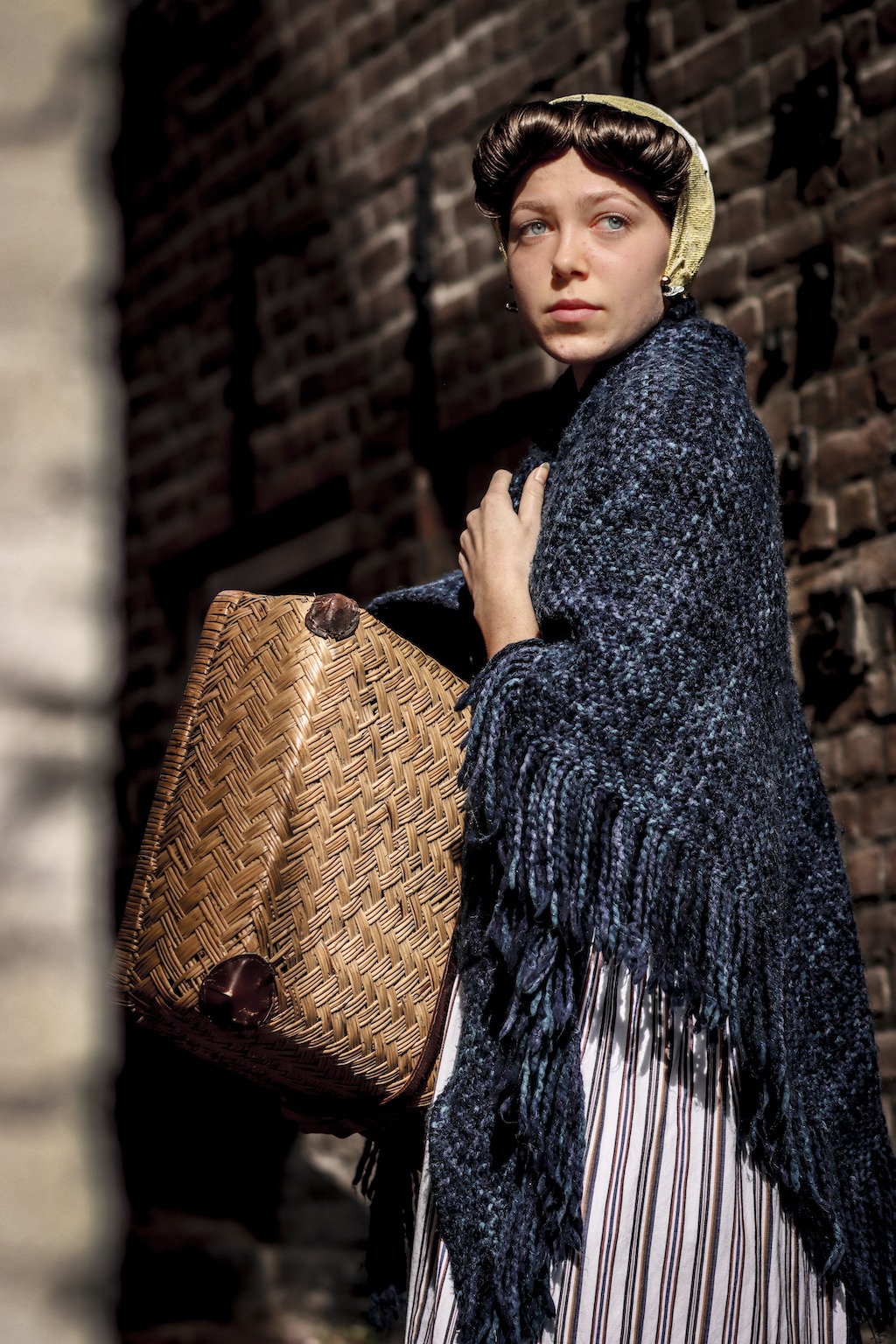
1. Place of joy and sorrow
Urk maids usually travel by boat to Enkhuizen. From here they move on: the ‘farm maids’ to the rural areas, the ‘city maids’ to places like Hoorn, De Zaan or even further, to Amsterdam, Utrecht and The Hague. In summer, they liked to work in ‘colony houses’ for needy kids on the North Sea coast.
Almost all Urkers have a maid as a foremother. From the second half of the nineteenth century until the Second World War, Urk girls pack their bags and go out into the wide world. Their financial contribution keeps families and businesses afloat and gives the girls a foundation as newlyweds.
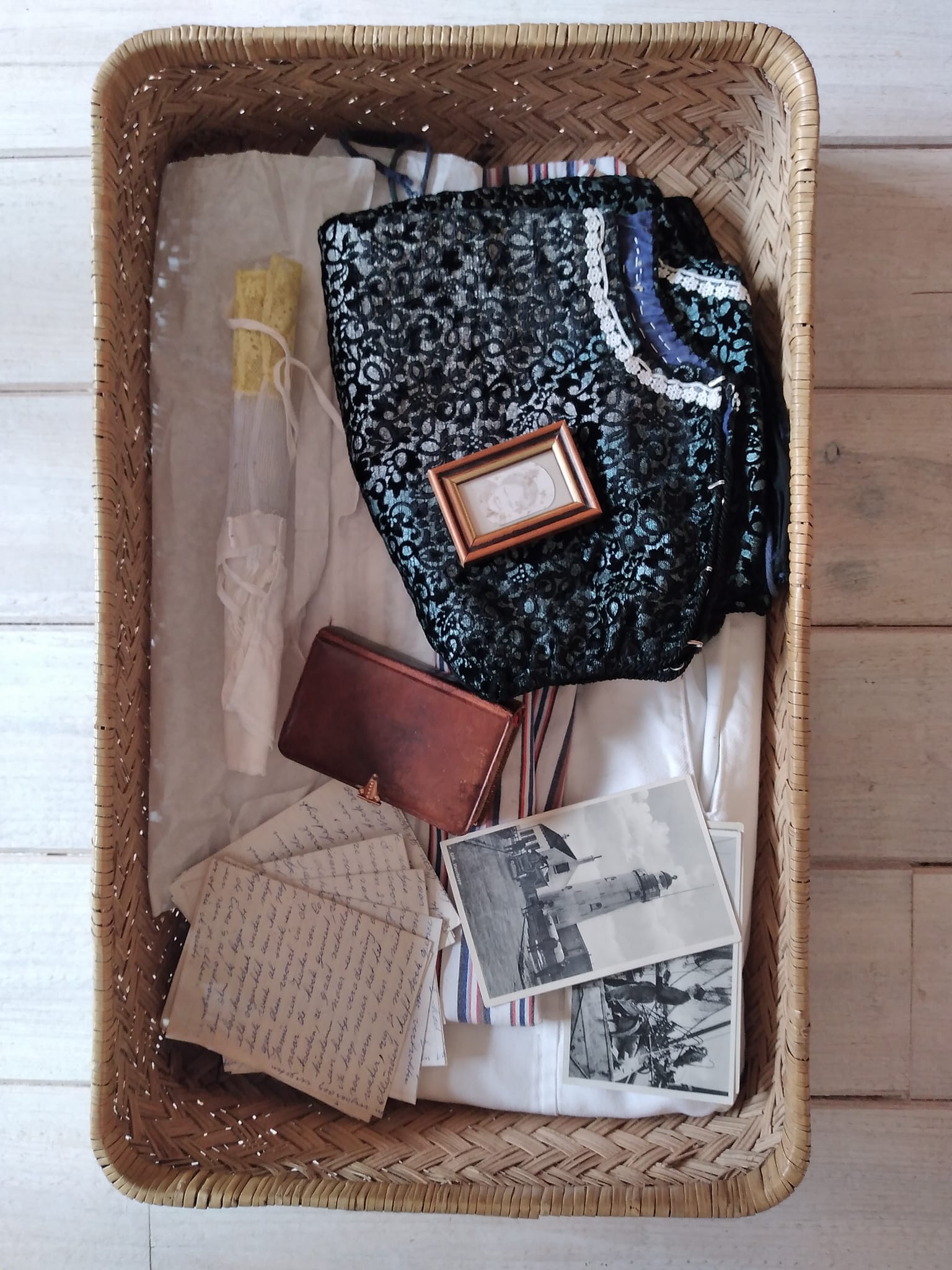
This is what the contents of a maid’s suitcase looked like (photo Lucia de Vries)
The average age is young: 14% of Urker maids are only 14-16 years old, over a third 17-19 years old.
Besides well-to-do families in Enkhuizen, Hoorn and Medemblik, farmers and market gardeners in West Friesland are in need of hands-on workers; Urk girls work here as ‘farm maids’.
When a train connection between Enkhuizen and Amsterdam is established in 1885, Urker girls find jobs in Jewish Amsterdam.
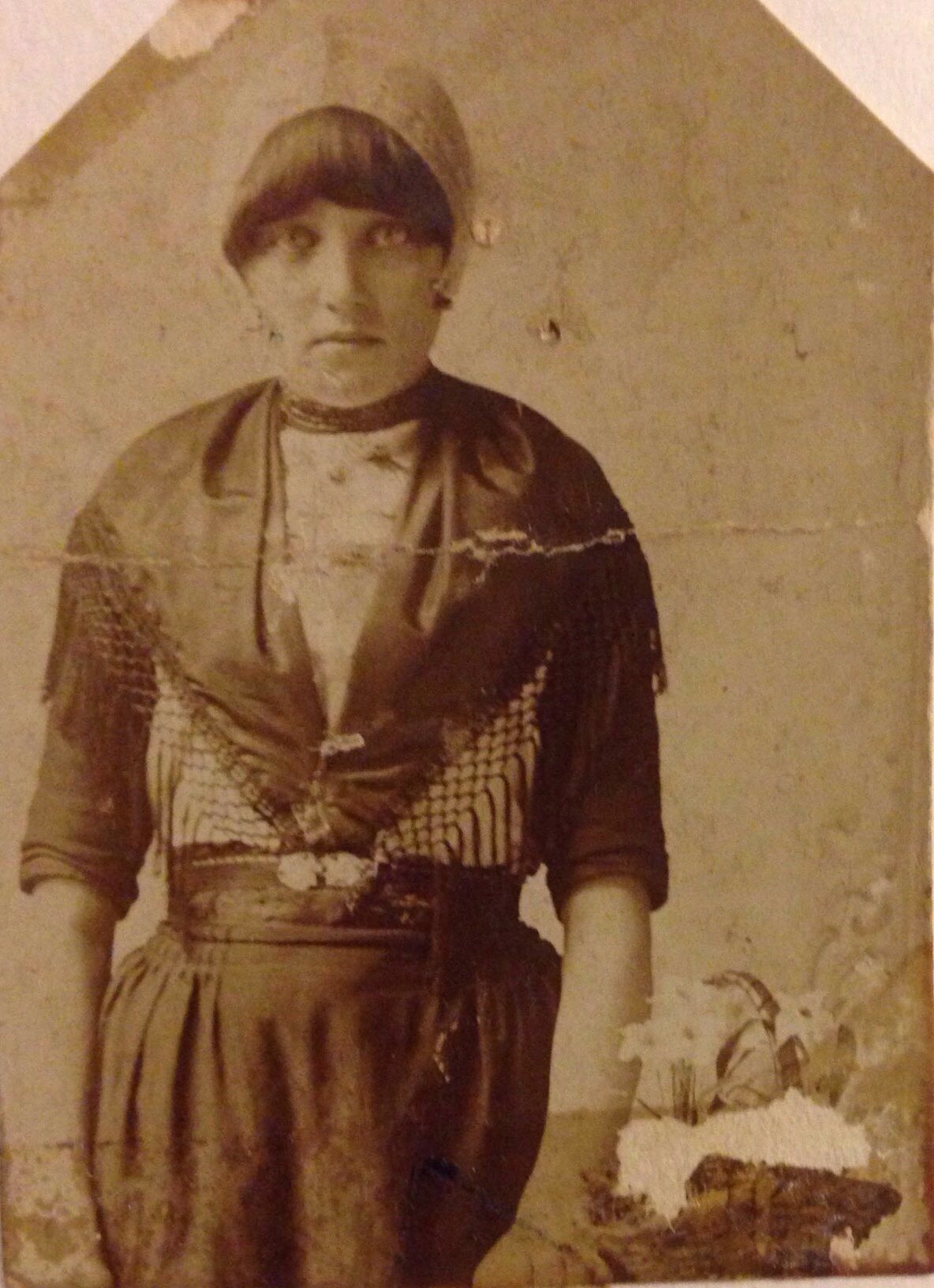
Lubbetje van Urk is only 14 when she joins a widower with two children (private collection)
Although some maids stick to one place, the majority change their place of work quite often. During the summer season, they like to travel to places like Bergen and Egmond, where they get better wages in recovery homes for malnourished kids.
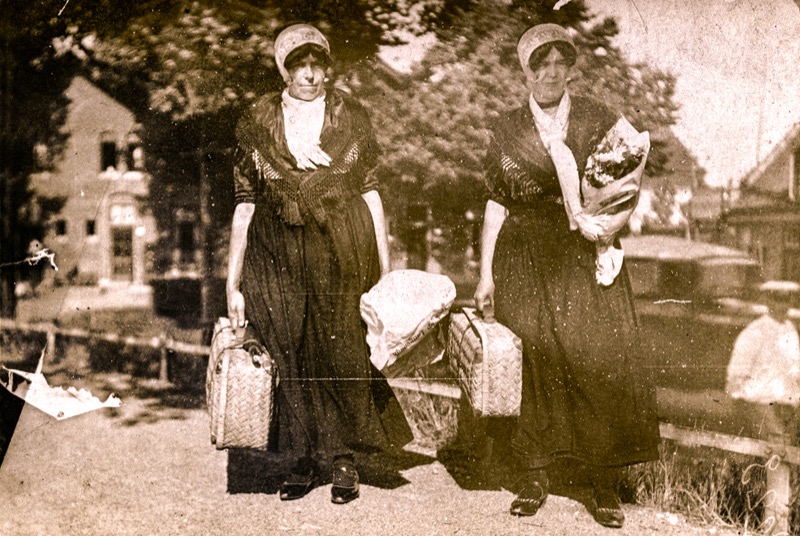
Photo of two Urk girls traveling (Collection Vrienden van Urk)
Their wages usually go directly into the Urk household pot, for daily expenses. Occasionally, money is needed to repair father’s fishing vessel. If the family can manage without, the money is saved for shoes, jewellery or gold pins, or furniture.
Want to know more? Click here .
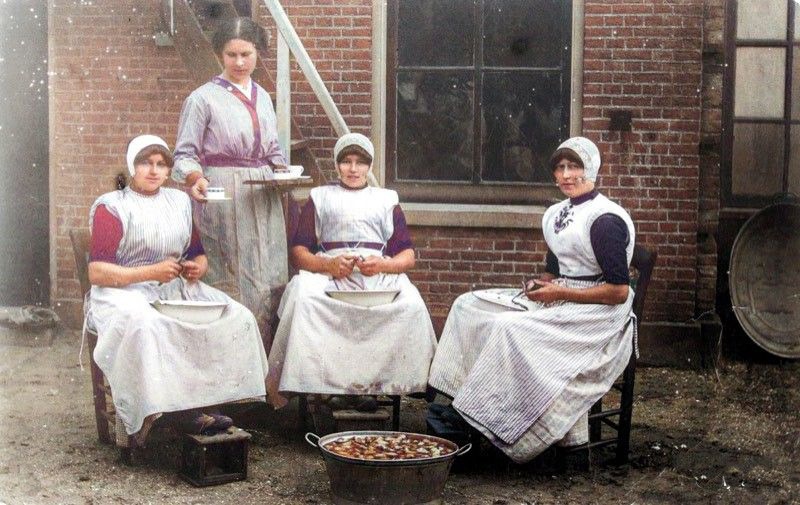
Maids get a cup of tea as they peel potatoes in a children’s colony home (source unknown)